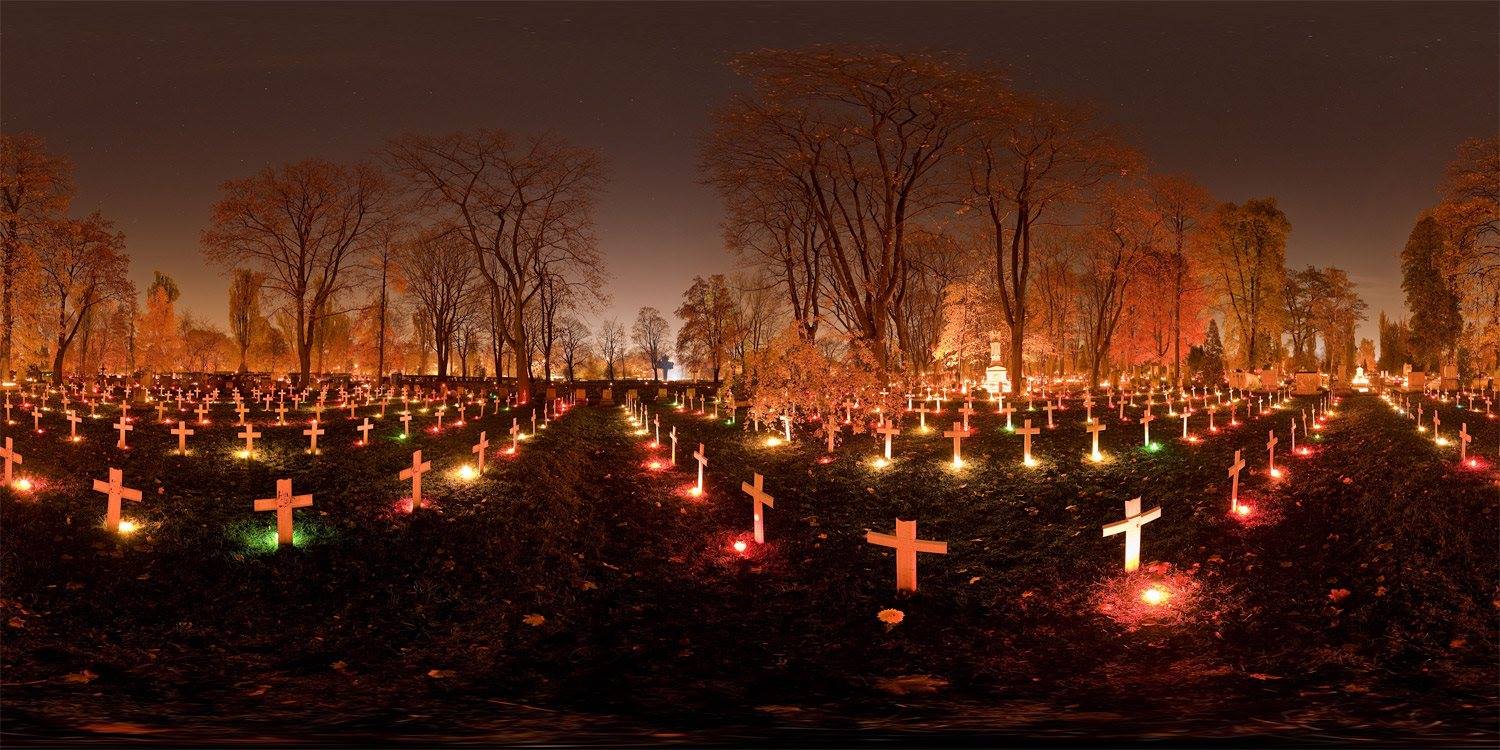Eleanor Parker, The Clerk of Oxenford has an essay on UnHerd about the remembrance of the dead. The Reformation, with its rejection of the doctrine of Purgatory and the abolition of prayer for the dead, created a rupture in Protestant countries. The Oxford Movement and Anglo Catholicism restored some of this Catholic attitude in segments of the Anglican world, but much as been lost.
I grew up in a big Catholic family in which people were always dying: great uncles and elderly second cousins and assorted relations. I remember visiting many funeral homes, many funerals, and many, many visits to cemeteries, so death was not strange. As an adult I had my mother die in my arms, as did an acquaintance who had been rejected by his family. And alas, I had young nephews and even an infant great niece die. I early adopted the custom of praying for my dead relations, and often added the very, very Catholic prayer: for all the forgotten dead, for those who have no one to pray for them.
Mount Calvary Church has a funerary chapel. Emily Stone-Alcock left money to build a chapel and to move her relations moved there from Greenmount Cemetery. I researched all the members of the family, and I have sat in the chapel and have had many conversations with Emily about church finances. We are repairing the water damage to the chapel now, and I think I will ask her how she would like the chapel painted. It is a funerary chapel, but it need not be quite so dreary.
In the absence of Christian images of death, pagan ones tend to take over the imagination. Edgar Allen Poe came from a Calvinist background, I believe, which rejected Christian images. But in the cemetery in which he is buried, the gravestones bear images of skulls and winged time, not the cross. Nor do his stories bear the slightest hint of Christianity.
The living and the dead are united in the communion of saints, the church on earth, in purgatory, and in heaven. We can’t repent for another person, although we may pray for his repentance, but we can help bear the pain of repentance. In the Middle Ages, it was a custom to do the public penance for another person which had been enjoined as a condition of absolution. If you saw someone sitting in sackcloth and ashes at the church door and begging for prayers, he may have been doing it for someone else. Being purged of our corruption and sins is a painful process, as we see the reality of the evil we have done. Yet in the Church, we can bear that pain for someone who has died. God is just, and His justification of sinners can be painful, but He allows us to help one another, so that gratitude may be multiplied.
